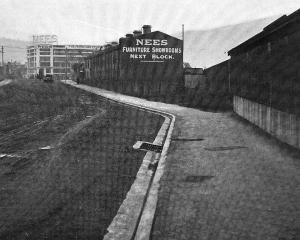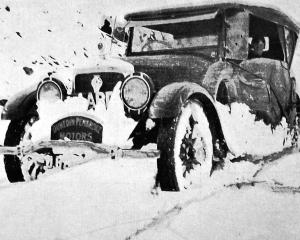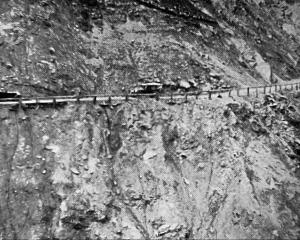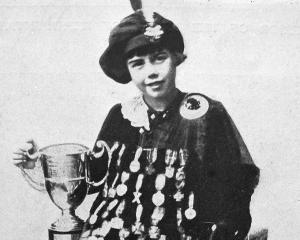
Freyberg is now a colonel in the Grenadier Guards. He had an extraordinary career in the war, having won several honours and awards, and being, at 27, the youngest brigadier-general in the British Army. He has two bars to his DSO. He was in the Antwerp expedition with “Churchill’s Army” and did well there. Afterwards he went to Gallipoli with the Royal Naval Division, and one of Mr Asquith’s sons was a lieutenant under him. I remember seeing them both at Alexandria, Asquith going on crutches and Freyberg with a bad wound in his arm, trying to dodge the doctors, so that he could get into the fight again. I asked him how he was going to manage it, and he said he would take off the bandage and put his hand in his pocket. He certainly managed to get there before the wound was healed, as did also several other of the keener spirits. His famous swim at the Bulair lines, when he went ashore on a dark night and lit flares under the noses of the Turks in their trenches as a ruse to make them think there was a landing there, brought him under the notice of the higher command. He seemed to have had a supreme contempt of danger, and his body bears the scars of many wounds. One of these wounds has been giving him trouble lately, so he has obtained leave for a sea trip and a visit to New Zealand.
Uneasiness at Government secrecy
WELLINGTON: The extent to which Government by edict is being continued by the Cabinet so long after the termination of the war, is causing some uneasiness among their friends and supporters here. The latest case in point is the provision for a censorship of cablegrams regarding the views of Ministers of the Crown on any Imperial question affecting any problem connected with the association of the United Kingdom and New Zealand in peace or war. It appears that any such cablegram handed in without Ministerial approval is to be refused. Ministers questioned on this matter yesterday said they had no statement to make.
Delays in producing war histories
Wellington: A statement has been made here that “most of the official histories recording the part played by New Zealand in the war are still in the course of preparation”. As a matter of fact there has been great delay in the printing of these. They have been in the hands of the Defence Department for about two years now. Moreover, it is only the so-called “popular histories” and the regimental histories that are being undertaken. These may or may not be popular, but as history they are certainly very inadequate. The Gallipoli history is a case in point, for in it what was probably the finest feat of arms by the New Zealanders in the whole war — the assault on Chunuk Bair — receives scant justice, while pages are devoted to unimportant matter.
Plea for the sport of yachting
A strong plea in favour of the sport of yachting was put forward by the commodore of the Royal New Zealand Yacht Squadron at the prize- giving. “Mothers, encourage your boys to be yachtsmen and sports,” he said. “Send them to the sea and teach them to love the sea, and they will build up a strong, virile manhood. They will learn discipline, sportsmanship, and resourcefulness that will fit them for after life, and the Empire ever needs such men as them.”
Women footballers keen
A well attended practice of lady football enthusiasts was held in the rowing club sheds in Wellington on Monday evening (states the Post). The coach (Mr P. Tutty) was present and at the conclusion of the practice he expressed his satisfaction at the remarkable progress made by the young ladies in the game. The idea to form a club has been received most enthusiastically by the young ladies, and there are some 50 volunteers to the call for members.
— ODT, 17.6.1921.












